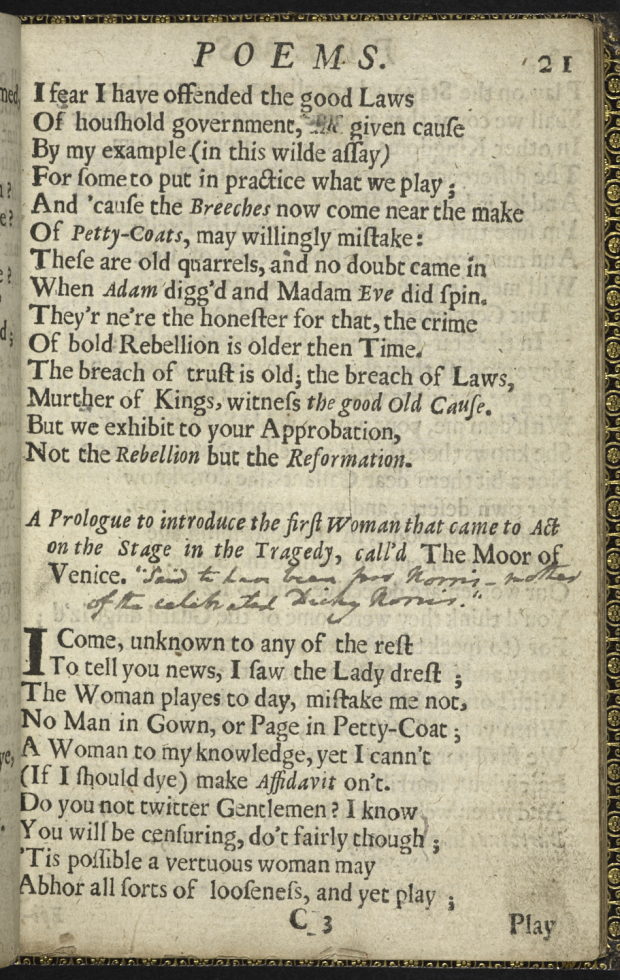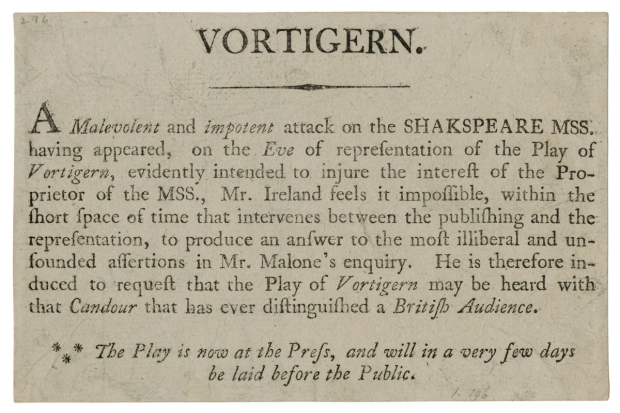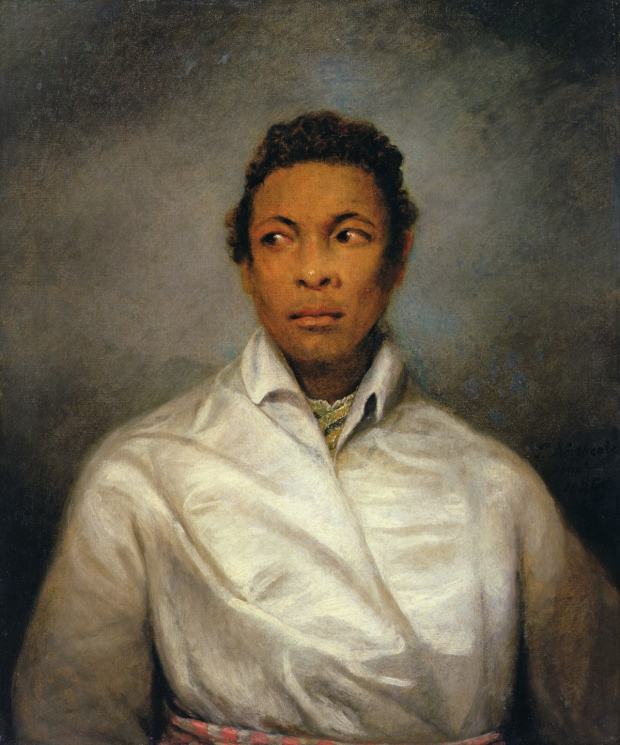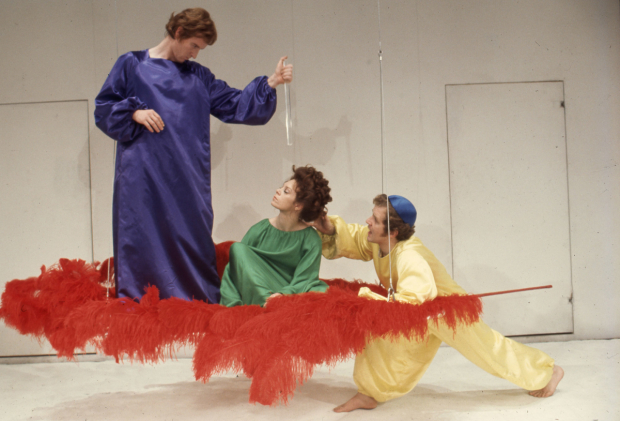Four performances that made Shakespeare into an icon
Greg Buzwell, one of the curators of the British Library’s latest exhibition ”Shakespeare in Ten Acts”, talks through four iconic Shakespeare performances
The British Library's new exhibition looks at iconic performances of Shakespeare plays over the last 400 years. One of the show's co-curators Greg Buzwell talks through four of the performances that changed how we look at the Bard.

© British Library
A woman acts Shakespeare for the first time in Othello, 1660
In Shakespeare's lifetime his plays were all performed by men and boys. There were no women onstage. Then when Charles II comes back to England in 1660, he has seen women on the stage in France and suddenly it's OK for women to act onstage in England. The key document which tells us about that is a prologue [see right] which was read out by someone who announced ahead of a performance of Othello that they were about to see a real woman performing Desdemona. It's written in quite a salacious manner, it's not – 'we are happy to witness this key moment in history', it's more like 'I have actually been backstage and I have seen her get dressed'. It's quite crude. We don't even know the name of the female actor. So this key moment in history is still very vague.
A Shakespeare forgery performed at Drury Lane, 1796
David Garrick puts on this Shakespeare Jubilee in Stratford-upon-Avon in 1769 and it really generates a lot of interest in his life and work. So antiquarians head off to find things that give insight into who Shakespeare was. But find very little. So into this gap falls William Henry Ireland, who has seen his father Henry Ireland looking for these documents with no luck. William starts to forge documents. He forges signatures, whole letters and then eventually plays including Vortigern and Rowena which he claims is a lost play by Shakespeare. A lot of people want to believe it to be genuine. The play is performed on April 2 in 1796 and it is a bit of a farce. People pushed their way into the theatre to see it. But it only has the one performance. It shows the endless fascination for more Shakespeare.

© British Library

© www.bridgemanart.com
The first black actor to play Othello in Britain, 1825
This was Ira Aldridge. He was an American, born in New York who comes to England to try his luck acting. He makes his debut at the Royalty Theatre in London's Docklands in May 1825 when he was only 17 years-old. I think he was genuinely a very good actor, he's often credited with bringing a more realistic style of acting to the stage. In 1833 he plays Othello again in Covent Garden where he runs for only two nights. The reason given because of a flu outbreak. However reading between the lines it's clear that the authorities didn't really like the idea of a black actor on London's stage. But he seems to have been very well received by the audiences. It's really the press that has it in for him and they attack him on racial grounds. The play Red Velvet looked into that recently. But again, it's like the first woman performing Shakespeare, it's a key turning point.
Peter Brook’s A Midsummer Night’s Dream, 1970

© Royal Shakespeare Company/Photo by Reg Wilson
We looked at late Victorian and early 20th century productions and Dream was one of those plays that had acquired so many extra layers. It really lends itself to so many romantic interpretations that are very over-the-top. You get productions with real rabbits on stage and productions with hundreds of fairies it becomes a really lavish spectacle. It's often the first play that children will see, their first introduction to Shakespeare so it has this rich place in cultural feelings about Shakespeare. Then you go from those lavish productions to Peter Brook, who stages the same play in a white box. So all that extra stuff is stripped away. He really wants to put the actors and the audience back into direct contact. And it is really bold. To do it with that particular play, with its visual excess was really brave. And people did seem to get it. It's one of those moments where everything changes. It's really interesting that roughly 370 years after the play was first performed it is suddenly reinterpreted in a totally original way. So it's an example of how that generation took this play and made it fresh and new.
Shakespeare in Ten Acts runs at the British Library until 6 September.












